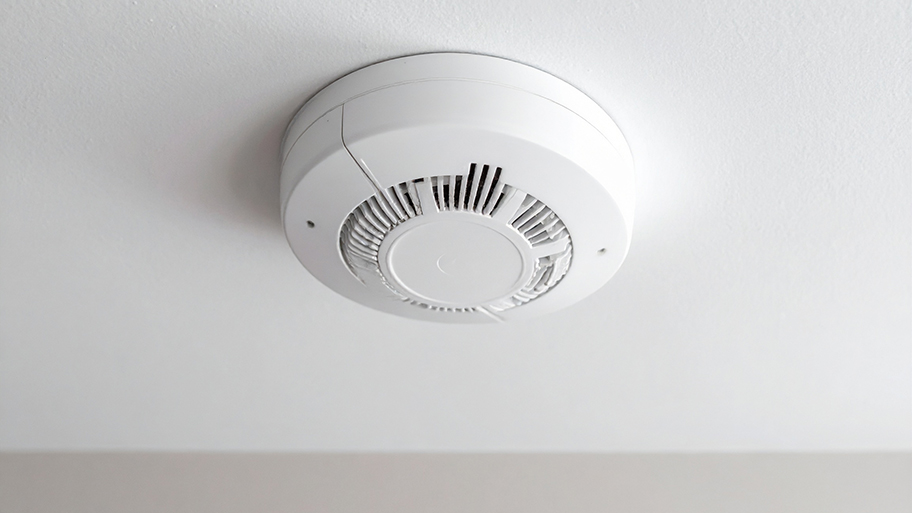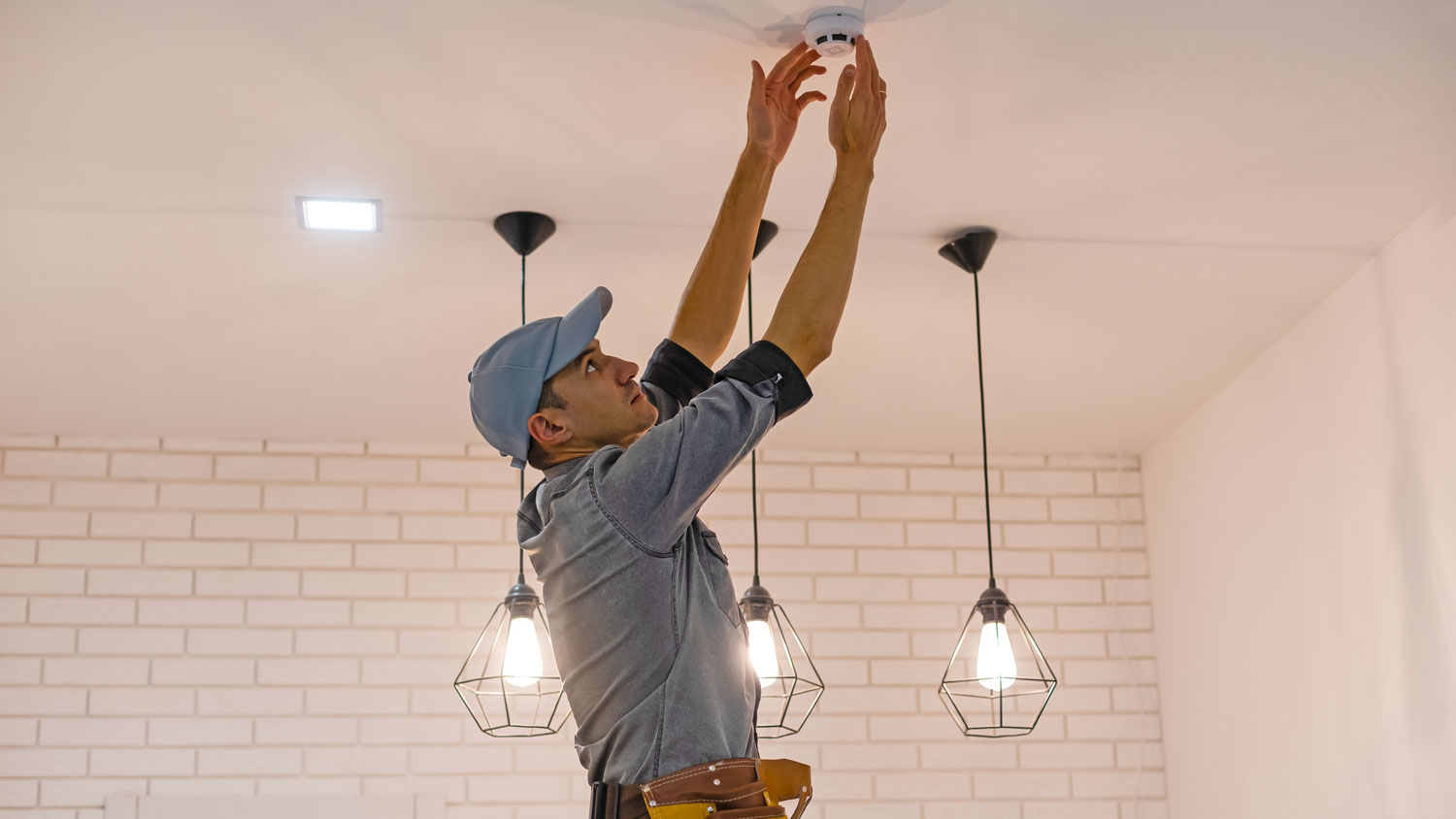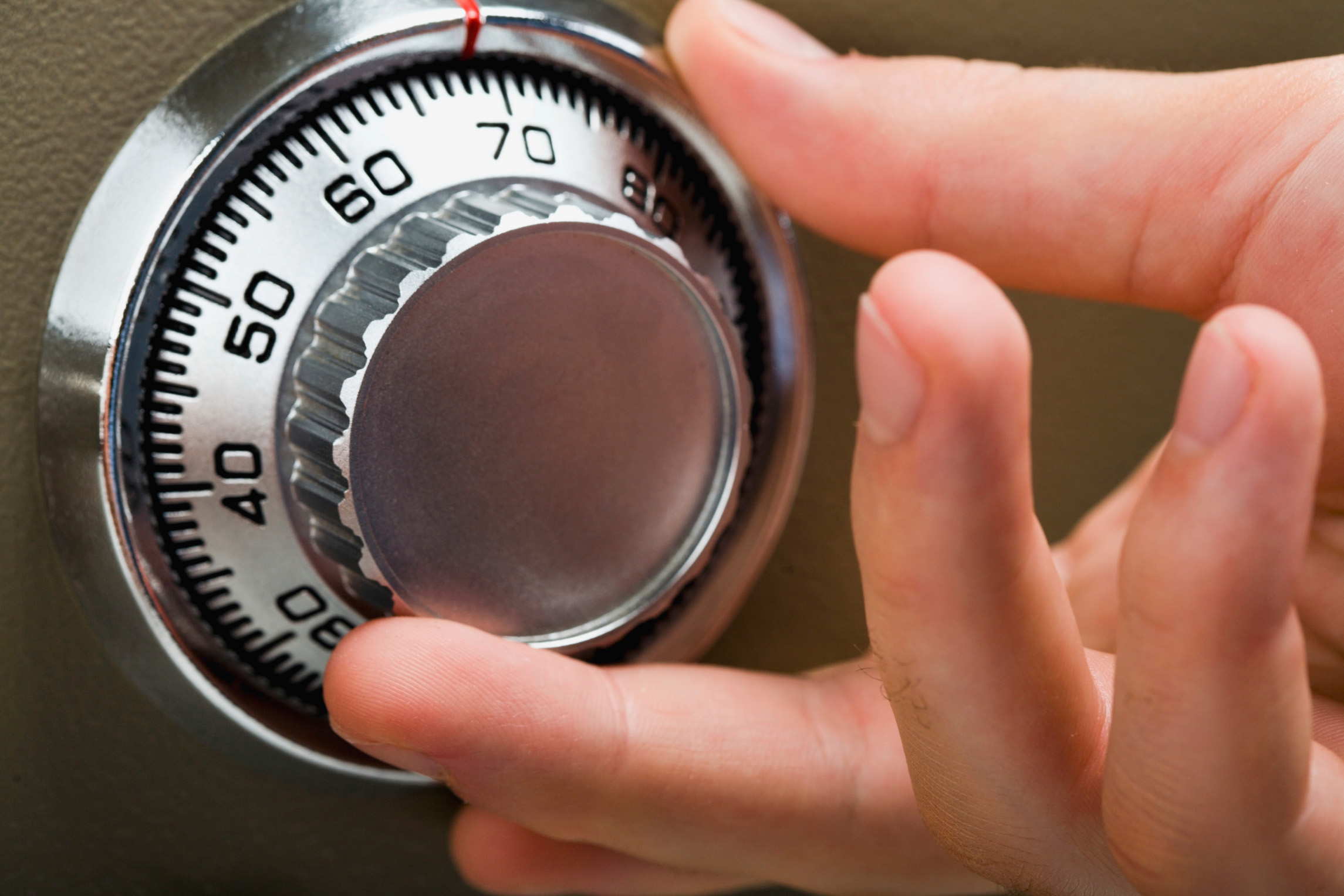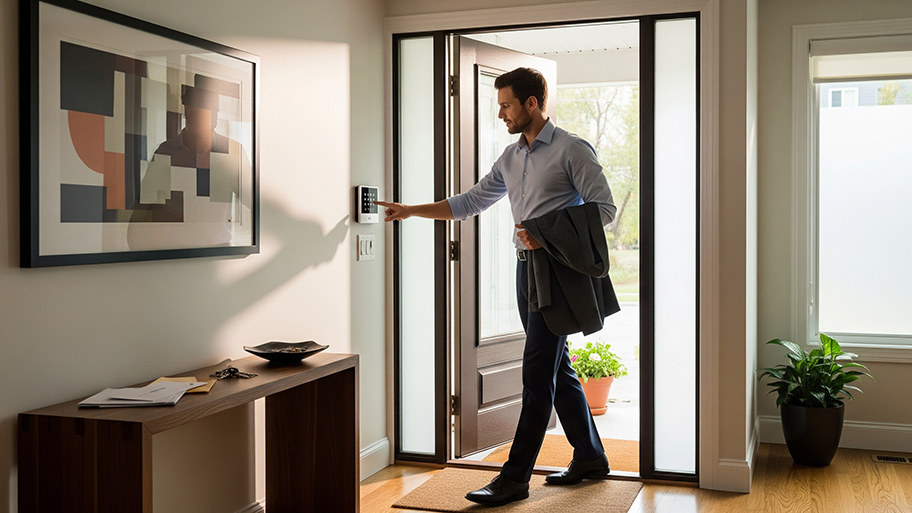
Discover true smoke detector installation costs. Learn about average prices, cost factors, and tips to save on your smoke detector installation project.
A qualified electrician should install hardwired smoke detectors


A licensed electrician is the best pro to install hardwired smoke detectors in your home. They can get your smoke detectors working properly and place them in the correct locations. A qualified home security pro or a handyperson can also finish this job and connect an adequate number of smoke detectors to protect your house and your loved ones. This guide covers what you need to know before hiring the right pro.

According to many local building codes, smoke detectors in new homes must be hardwired into the electrical system, which requires a qualified electrician. Hiring a local electrician who installs smoke detectors means they’ll install them in the best locations, and the units will alert you and your family when a fire is present. Doing any DIY electrical work can result in shocks, electrocution, damage, or accidental fires, so hiring a licensed electrician is essential for safety.
Smoke detector installation costs range between $70 and $150, with most electricians charging an hourly rate of $50 to $100. Your electrician can also ensure your smoke detectors are up to code and work correctly.
If you purchase battery-operated smoke detectors, you can DIY the project if you know some basic information about how and where to install smoke detectors. According to the U.S. Fire Administration, you should:
Install both of the two main types of smoke detectors—ionization and photoelectric—or dual-sensor smoke detectors (a combination).
Choose interconnected smoke alarms that will all sound if one detects smoke—these can link wirelessly and be hardwired or battery-powered.
For the best performance, install smoke detectors high on the walls or on the ceiling. If you install smoke detectors on the wall, they should be within 12 inches of the ceiling.
Install smoke detectors inside and outside each bedroom and sleeping area and on each level of the home.
Test batteries monthly by pressing the test button on the unit or using an app for smart smoke detectors and replace batteries when needed. If a 10-year battery-powered smoke alarm is chirping, replace the entire unit (as the batteries cannot be switched out).
While you should call a local electrician to install hardwired smoke detectors, there are a few other options if you choose battery-operated smoke alarms. A handyperson in your area who is well-versed in smoke detector installation can place your battery-powered smoke detectors. You can also call a home security pro near you who can add smoke alarms to alert your household to a potential fire.
Your local fire department may offer smoke detector installation for free. Your local American Red Cross may also offer free installation and programs to provide fire safety information and help homeowners prepare an escape plan.
When someone from the Red Cross or local fire department comes to install smoke detectors in your home, you can also ask them questions about maintenance, when to replace smoke detectors, what it means when a smoke detector flashes red, or carbon monoxide detectors versus smoke detectors and where to install each one.
If you decide to install hardwired smoke detectors, an electrician will install them by:
Turning off the power to the home.
Locating the best place to install each smoke detector on the ceiling with no ceiling joists or studs to obstruct the mounting box.
Running wiring to the electrical system.
Pulling the wiring through the mounting box and attaching each wire to the corresponding wire on each smoke detector.
Attaching the mounting bracket to the ceiling and installing the smoke detector on the mounting bracket.
My ac system failed, and I was in disparate need of a new system without breaking the bank. The good people at Dixie Electric, Plumbing, and Air were amazing! Not only did I get a great price, but the technicians were able to install my new system in two days. The were on time and very...
We just finished having our house resided with new vinyl siding. They were phenomenal!! Their attention to detail, work ethic and friendliness were greatly appreciated. We definitely recommend this company to anyone considering updating their home with siding.
Too many issues during and after installation. They applied the wrong pebbletec from what was selected. There are pending issues including incorrectly graded pavers which causes water logging, the autofill system leaks underground and floods the lawn, they have not installed the overflow...
From average costs to expert advice, get all the answers you need to get your job done.

Discover true smoke detector installation costs. Learn about average prices, cost factors, and tips to save on your smoke detector installation project.

Motion-sensor lighting costs vary greatly because they have so many customizations available. Learn more by using this cost guide about motion-sensor lights.

Discover wall safe installation cost details. Learn about average prices, key cost factors, and tips to save on your wall safe project.

This guide will help you disconnect a home alarm system, whether you’re installing a new system or just want old electronics out of your house.

You don’t have to spend thousands to set up a security system. Follow this DIY guide to learn how to install security cameras and protect your home.

Learn the differences between 12 different types of home security systems along with their pros, cons, costs, and purposes.